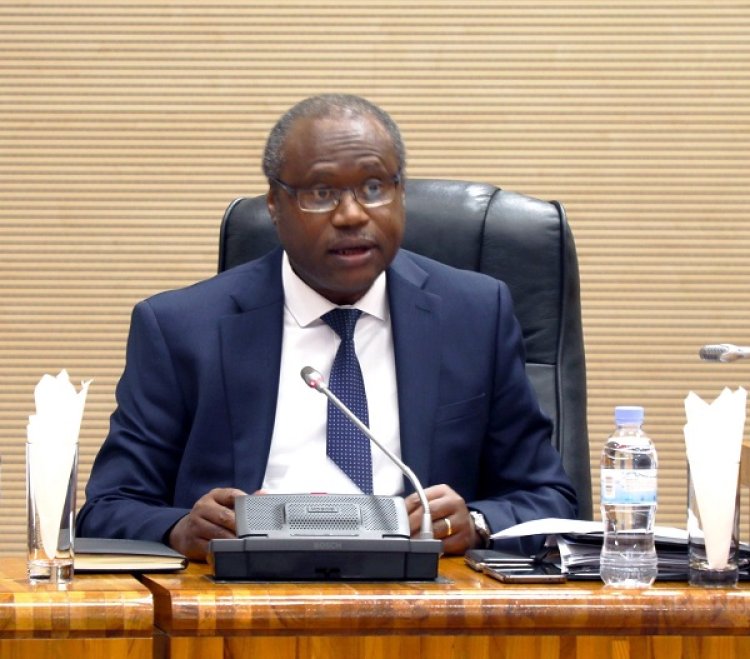Rwanda plans to increase its 2022/2023 budget by $98.2 million to Rwf4.7 trillion ($4.3 billion) as government earmarks additional allocation for interventions to mitigate effects of inflation on the low income and poor households.
The revised budget for the fiscal year, therefore, rises from the initial Rwf4.6 trillion which had been approved by the country’s Parliament in June last year.
Government expects domestic resources to increase by $106.3 million to $2.2 billion, driven largely by the $104.4 million rise in tax revenues to $2.01 billion.
External grants are, however, projected to plummet by $164.8 million to $672.2 million from $837.3 million in the original budget.
Also read: Treasury targets officials’ travels, workshops in spending cuts
“Grant disbursement has underperformed due to conditions not being met on time and is expected to continue in the near-term with the Russia/Ukraine war potentially delaying disbursement of development partner funds to Rwanda,” the finance and economic planning minister Uzziel Ndagijimana indicated in his explanatory note to Parliament.
Mr. Ndagijimana presented the revised budget to Parliament Wednesday.
His explanatory note further indicates that in the context of limited fiscal space, expenditures will be targeted towards the most pressing needs which include reducing the impact of rising prices on the population for food and fuel, and supporting economic recovery from the impact of the COVID-19 pandemic.
Others include fast-tracking the completion of ongoing projects close to conclusion and which have shown good results in socio economic transformation, as well as honouring existing legal and contractual commitments.
Tabled details further show that government will maintain the current subsidy to private transport operators amounting to 0.1 percent of GDP, and increase a number of social protection programs and prioritize some key interventions under the Economic Recovery Plan (ERP).
Also read: AUDIT: Rwanda loses billions to projects delays, mismanagement
These include infrastructure projects that create a large number of jobs, combating flooding and landslide, and enabling regional trade, among others.
Government equally seeks to maintain fertilizers subsidies, amounting to 1.4 percent of GDP, to support domestic agriculture production to address any food security concerns.
Inflation
According to the treasury, impact of inflation on food prices will require mitigating policies to reduce the impact on affected households especially the poor, while the general increase in prices is also exerting pressure on budget expenditures.
Elevated global commodity prices and subdued domestic food production have pushed up inflation to 21.6 in December 2022, a trend that prompted the central bank to raise the policy rate by 50 basis points to 6.5 per cent in November 2022.
The banking sector regulator had increased the policy rate by 100 basis points in August, and 50 basis point in February of the same year as part of measures to ease inflationary pressures and preserve consumers’ purchasing power.
The treasury projects inflation to moderate to around 7.9 per cent this year, while GDP is expected to grow at 6.2 per cent, and recover to around 7.5 percent in 2024 and 2025.
Rwanda’s economic recovery prospects facing new headwinds
Debt
However, government will have to mibilise resources to fund ongoing and new expenditure priorities for these prospects to materialise, and in order to maintain the fiscal deficit and debt levels at a sustainable level.
Official data show that as of end June 2022, Rwanda’s total debt stock stood at $7.8 billion — 70.7% of GDP — compared to $7.3 billion — 73.3 % of GDP — as of end December, 2021.
“This shows an increase of Rwf451 billion in levels, while it shows a reduction of 2.6 % relative to GDP due to an increase of Nominal GDP, and a lower than anticipated depreciation of the franc against the US dollar,” indicated the treasury, adding that despite this increase debt remains sustainable with a moderate risk of debt distress.
It further indicates that the deprecation of the franc may increase the pressure on debt repayments going forward. Of concern also is the increased use of high-cost domestic borrowing to fund the deficit, and the use of high-cost treasury bonds which will increase the cost of any further borrowing.









